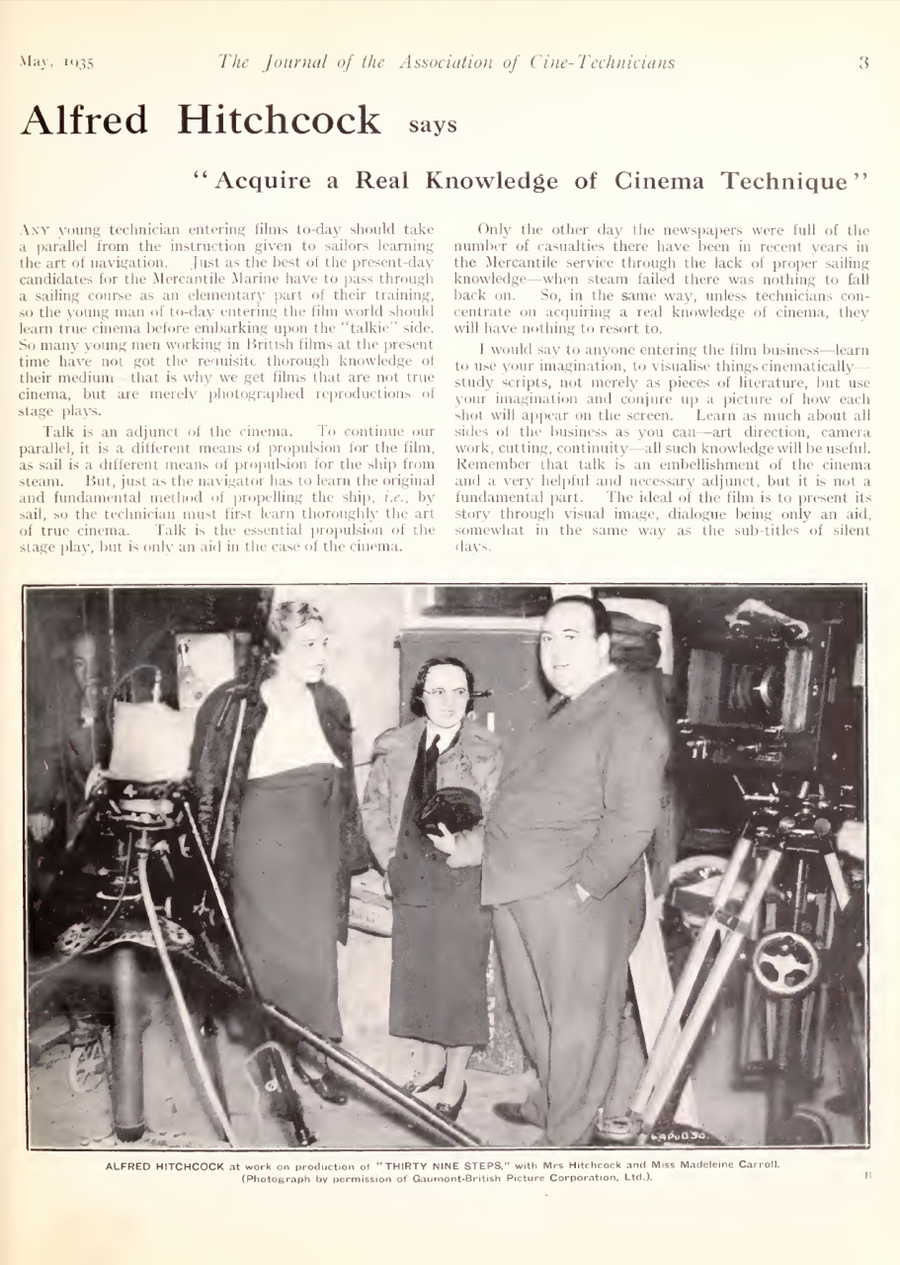From the first issue of The Cine-Technician (May 1935), a lead article by Hitchcock…
Alfred Hitchcock Says
“Acquire a Real Knowledge of Cinema Technique”
Any young technician entering films to-day should take a parallel from the instruction given to sailors learning the art of navigation. Just as the best of the present-day candidates for the Mercantile Marine have to pass through a sailing course as an elementary part of their training, so the young man of to-day entering the film world should learn true cinema before embarking upon the “talkie” side. So many young men working in British films at the present time have not got the requisite thorough knowledge of their medium — that is why we get films that are not true cinema, but are merely photographed reproductions of stage plays.
Talk is an adjunct of the cinema. To continue our parallel, it is a different means of propulsion for the film, as sail is a different means of propulsion for the ship from steam. But, just as the navigator has to learn the original and fundamental method of propelling the ship, i.e., by sail, so the technician must first learn thoroughly the art of true cinema. Talk is the essential propulsion of the stage play, but is only an aid in the case of the cinema.
Only the other day the newspapers were full of the number of casualties there have been in recent years in the Mercantile service through the lack of proper sailing knowledge — when steam failed there was nothing to fall back on. So, in the same way, unless technicians concentrate on acquiring a real knowledge of cinema, they will have nothing to resort to.
I would say to anyone entering the film business — learn to use your imagination, to visualise things cinematically — study scripts, not merely as pieces of literature, but use your imagination and conjure up a picture of how each shot will appear on the screen. Learn as much about all sides of the business as you can — art direction, camera work, cutting, continuity — all such knowledge will be useful. Remember that talk is an embellishment of the cinema and a very helpful and necessary adjunct, but it is not a fundamental part. The ideal of the film is to present its story through visual image, dialogue being only an aid, somewhat in the same way as the sub-titles of silent days.

